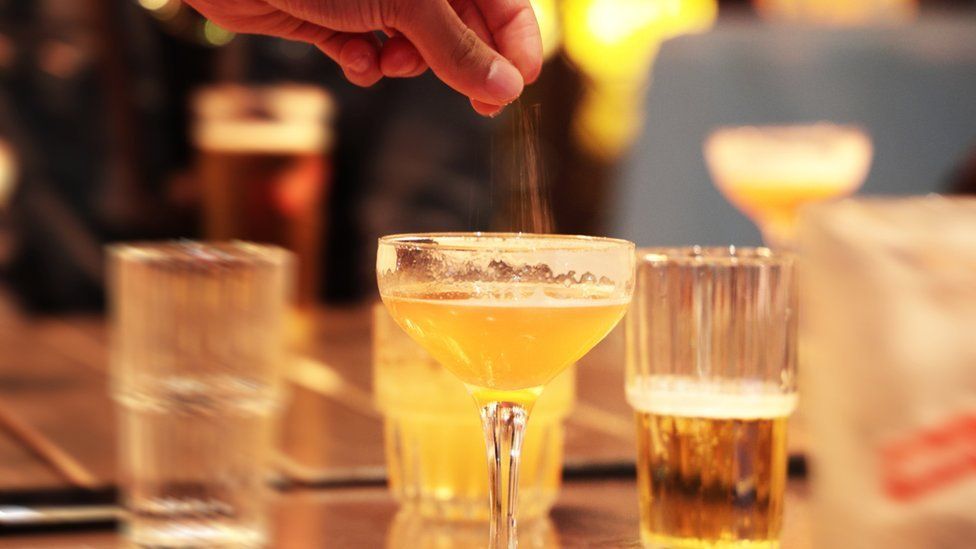The government says a new law is unnecessary as there are already several offences which cover spiking.
 Image source, Getty Images
Image source, Getty ImagesThe government has said it will not create a specific offence for spiking, arguing a new law is unnecessary.
Ministers said they were looking into the issue last year.
But on Wednesday, Home Office Minister Sarah Dines said there were already several offences which covered spiking incidents and the government had not found “any gap in the law”.
Supporters of the idea argue it could help increase reporting of incidents and improve police data.
MPs on the Home Affairs Committee were among those calling for new legislation to target spiking – when someone puts alcohol or drugs into another person’s drink or body without their knowledge of consent.
Ms Dines confirmed the government’s position in a letter to the committee’s chairwoman, Labour MP Diana Johnson, which was written in December but published on Wednesday.
She said the government had considered the case for legislation but had decided a new offence was not required.
“The existing offences cover all methods of spiking, including by drink, needle, vape, cigarette, food or any other known form,” she said.
“Police are yet to encounter a case where they could not apply an existing offence.”
She added that a specific spiking offence would not increase the powers available to judges in such cases or the likelihood of charging or prosecuting an offender.
Ms Dines said the government had concluded its focus should be on non-legislative measures to tackle spiking and it would consult on potential changes to statutory guidance to include “explicit reference to spiking being illegal and give examples of such spiking”.
The committee had previously argued a specific offence would have several benefits, including increased reporting of incidents, facilitating police work by improving data and “sending a clear message to perpetrators that this is a serious crime”.
Last year, then-Home Secretary Priti Patel told the committee the government was looking into “a specific criminal offence to target spiking directly”.
During a Westminster Hall debate earlier, she called for existing legislation to be amended so there was a “coherent approach” in addressing spiking.
Dame Diana said she was disappointed by the government’s decision as existing legislation was “clearly not working” and not being used.
“Reporting is low, and prosecution rates are very rare indeed,” she added.
Labour’s shadow Home Office minister Sarah Jones said: “We should call a spade a spade in this case and introduce a specific offence for spiking.”
Conservative MP Richard Graham also criticised the government’s response, accusing it of “various straw man arguments”.
“In almost 13 years as an MP I have not read such an extraordinary letter,” he said.
Almost 5,000 cases of needle and drink spiking incidents were reported to police in England and Wales in the 12 months to September 2022, according to the National Police Chiefs Council.
It said forces had increased their focus on spiking, with high visibility patrols across town and city centres, following a rapid rise in spiking reports during the autumn of 2021.
Spiking is illegal under current laws, for example the Sexual Offences Act 2003, which says it is an offence to administer a substance to another person without their consent, with the intention of “stupefying or overpowering” them so as to enable any other person to engage in sexual activity with them.
Section 23 of the Offences Against the Person Act 1861 also makes it an offence to maliciously administer poison so as to endanger the life of someone or inflict grievous bodily harm.
- If you are affected by any of the issues in this article, help and support are available at BBC Action Line.